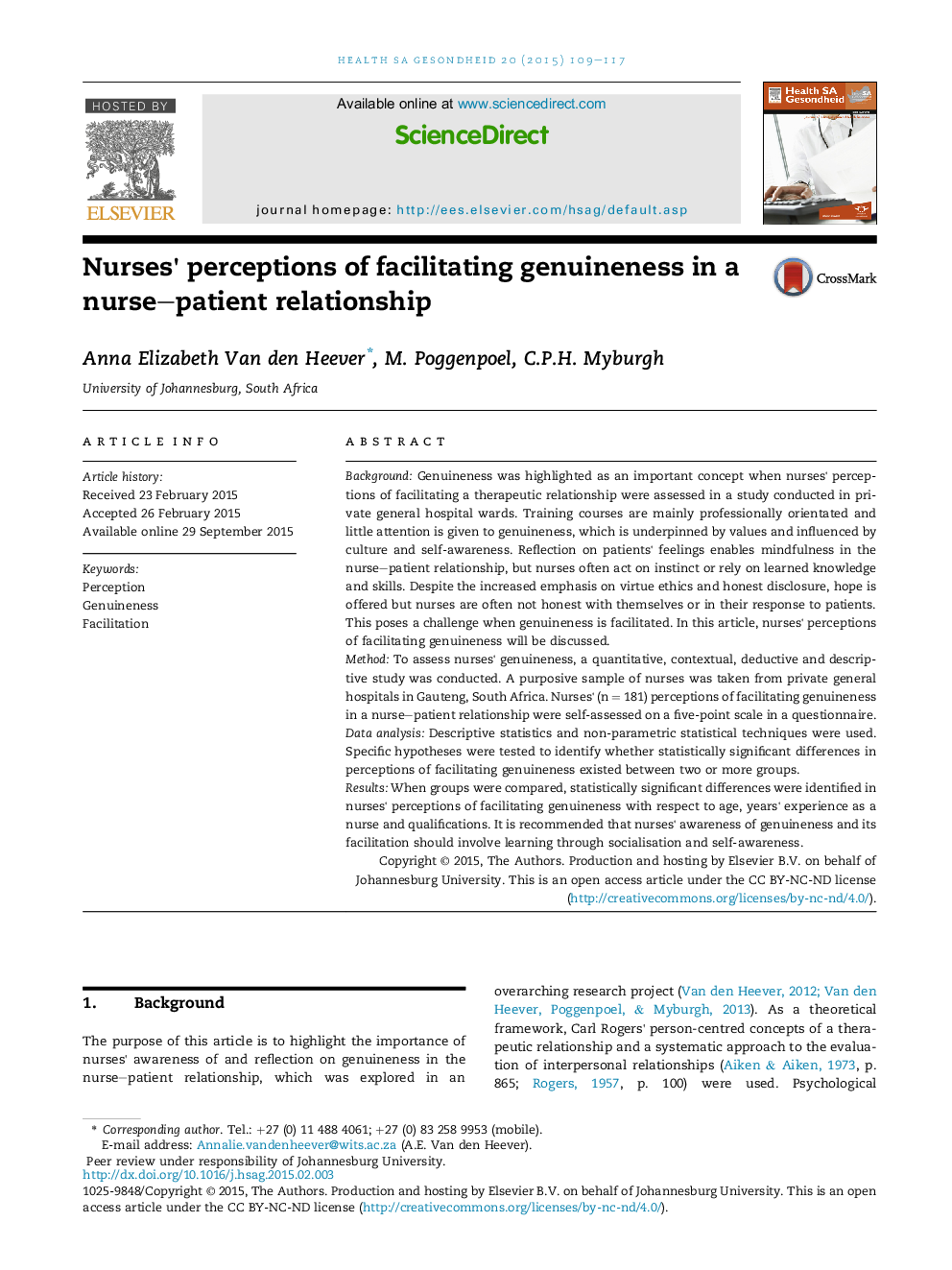| Article ID | Journal | Published Year | Pages | File Type |
|---|---|---|---|---|
| 2652288 | Health SA Gesondheid | 2015 | 9 Pages |
BackgroundGenuineness was highlighted as an important concept when nurses' perceptions of facilitating a therapeutic relationship were assessed in a study conducted in private general hospital wards. Training courses are mainly professionally orientated and little attention is given to genuineness, which is underpinned by values and influenced by culture and self-awareness. Reflection on patients' feelings enables mindfulness in the nurse–patient relationship, but nurses often act on instinct or rely on learned knowledge and skills. Despite the increased emphasis on virtue ethics and honest disclosure, hope is offered but nurses are often not honest with themselves or in their response to patients. This poses a challenge when genuineness is facilitated. In this article, nurses' perceptions of facilitating genuineness will be discussed.MethodTo assess nurses' genuineness, a quantitative, contextual, deductive and descriptive study was conducted. A purposive sample of nurses was taken from private general hospitals in Gauteng, South Africa. Nurses' (n = 181) perceptions of facilitating genuineness in a nurse–patient relationship were self-assessed on a five-point scale in a questionnaire.Data analysisDescriptive statistics and non-parametric statistical techniques were used. Specific hypotheses were tested to identify whether statistically significant differences in perceptions of facilitating genuineness existed between two or more groups.ResultsWhen groups were compared, statistically significant differences were identified in nurses' perceptions of facilitating genuineness with respect to age, years' experience as a nurse and qualifications. It is recommended that nurses' awareness of genuineness and its facilitation should involve learning through socialisation and self-awareness.
